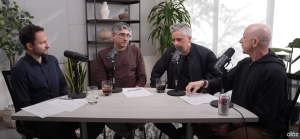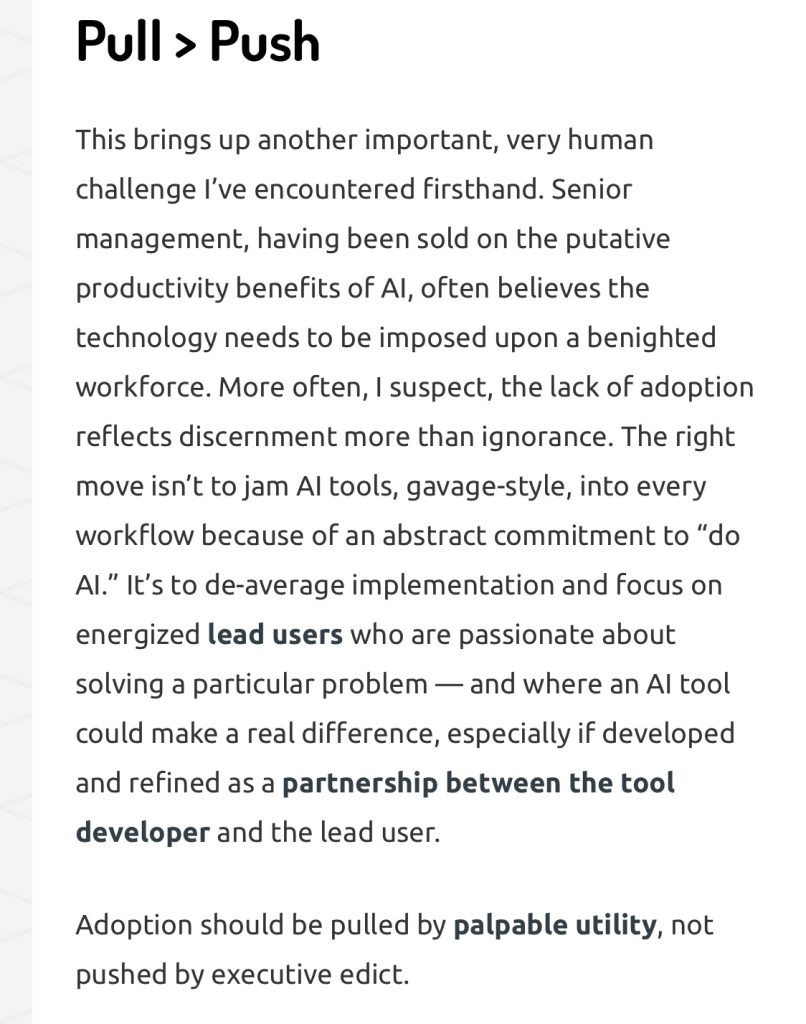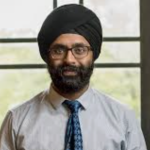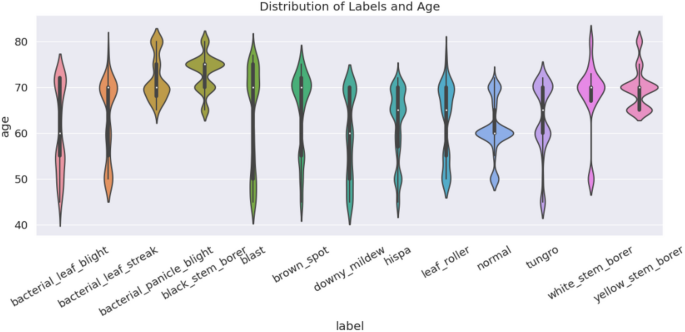Tech Comments (3) Luis Alvarez Adobe (NASDAQ:ADBE) and GitLab (NASDAQ:GTLB) shares slipped in early trading on Tuesday as investment firm Mizuho said the market believes it is seeing a “severe negative impact” from artificial intelligence. “ADBE sits at the intersection of creative software and generative Quick Insights Recommended For You
Silicon Valley: Yes, AI Does Enhances Productivity — In The Right Hands & Context
Silicon Valley: Yes, AI Does Enhances Productivity — In The Right Hands & Context
Outside the glare of hyperbolic headlines, organizations of all sizes – including most in healthcare – are urgently trying to figure out how AI will fit into their workflows and business plans.
Perhaps the most interesting recent discussion I’ve heard on this subject involved a trio of Andreessen-Horowitz (a16z) partners — Erik Torenberg, Martin Casado, and Steven Sinofsky — who were joined by Aaron Levie, the CEO and co-founder of Box.
] Torenberg, Casado, Levie, and Sinofsky
Torenberg, Casado, Levie, and Sinofsky
The entire conversation is an essential listen (or view, since it can be difficult on audio to distinguish the voices of the four men).
The most important takeaway: the greatest productivity gains (albeit self-reported) seem to be achieved by users, generally software developers, who are impassioned, engaged, curious, and forgiving – and who start off with a fair amount of expertise.
As Levie describes it,
“…the biggest gains of AI go to people who have some degree of expertise in an area to know what is actually true, what is not going to work, what should I integrate from the output of this AI … If you don’t have a deep understanding of your particular space or field or domain, you aren’t able to then have the right judgment to make all of those decisions. So I think the experts just get more powerful in this world.”
Or, as Casado says,
“The more senior small teams that use AI are superhuman. It’s like they woke up and they were all f–king Tony Stark and it’s unbelievable. And like, their productivity is insane. But they’re all they’re all super senior [i.e. experienced/expert].”
Levie notes that the most successful adopters of AI can also be really young engineers who are AI native and super engaged with the technology. He explains,
“They would have been maybe 10x engineers in a prior world, but now they’re like 100x engineers. And so, senior in terms of in their own kind of relative cohort, but like the way that they are building their startups are just like completely different.”
These pioneers – I’ve favored the term “lead users” — are able to guide the AI thoughtfully and constructively, in an intrinsically bottom-up approach. This is exactly what I’ve advocated (see below, reproduced from a recent TR column), but not necessarily how many biopharmas are tackling the problem.
 Flashback to TR column from 11 September 2025.
Flashback to TR column from 11 September 2025.
As Casado notes, a recipe for failure, and what might account for the astonishingly high (95%) observed in AI pilots, is precisely this top-down approach favored by large companies. As he describes it,
“If you actually look at the reports on ‘enterprise things fail’ and look at what they were measuring, it’s clearly some internal project pushed down by the board where they hired some consultant to do it – it’s going fail.”
Sinofsky adds that AI is the latest example of “bottom-up adoption…really changing the productivity equation,” noting, “Big companies do not know how to deal with that because they need to control it. They worry about safety and security and privacy and all of their corporate rules.”
AI Implementation in Healthcare
The distinction between AI adoption in established organizations and startups can also be observed in healthcare.
] Dr. Karandeep Singh[/caption]
Dr. Karandeep Singh[/caption]
For example, in a recent (and resonant) NEJM-AI podcast, Dr. Karandeep Singh, the Chief Health AI Officer at UC San Diego Health, emphasized the lived complexities of AI adoption he’s experienced in an established healthcare system.
A key learning, offered by the NEJM-AI episode blurb: “the best AI is guided by patient care, deep expertise, and humility about the limits of technology.”
Contrast this cautious, thoughtful incrementalism with the disruption emphasized by a16z healthcare partner Julie Yoo in this post – not to mention a16z co-founder Marc Andreessen’s declaration, on the “Cheeky Pint” podcast, that “ChatGPT is in fact a better doctor than your doctor today with almost 100% certainty.”
Andreessen added that a key limitation in the speed with which AI can transform medicine are pesky regulatory and licensure requirements, adding that the fields that will move the fastest, and attract the best and most ambitious talent, are those like many areas of software development that aren’t so encumbered.
A reinforcing example of Silicon Valley’s belief in the inevitability of AI transformation in healthcare comes from a recent job posting from chip maker NVIDIA, a company now worth about $4.5T (yes, that’s a “T”). Keen to expand AI adoption in healthcare and life sciences, they are hiring a “Director, Healthcare AI startups.”
In particular, they “are seeking a passionate Global Healthcare Life Science (HCLS) Startup Director to scale NVIDIA’s developer ecosystem worldwide…This role centers on building programs that drive adoption of NVIDIA technology by the HCLS startup community.”
So far, very reasonable.
Yet it turns out that in this role centered on enabling technology for drug developers and healthcare providers, actual experience in drug development or healthcare is apparently not required (other than industry/ecosystem contacts).
In contrast, helpful attributes for candidates to possess include “prior experience with AI, machine learning, or high-performance computing” and “background in venture capital, startup acceleration, or developer advocacy.”
In so many words: “AI is all you need.”
—
Additional recommended AI-related content:
Human Values Project that Zak Kohane is spearheading.
NYT on Eliezer Yudkowsky, AI’s “Prophet of Doom”
“Click Here” podcast episode (“AI’s giant pool of hype”) featuring AI skeptic Gary Marcus
With access to two leaked a16z LP decks, Leslie Feinzaig explains in Fast Company why a16z is “moving upstream,” pursuing bigger and bigger funds (you probably don’t need AI, just a rudimentary understanding of management fee math, to figure out the reason). Incredibly captivating new “Acquired” podcast episode on Google and AI.



